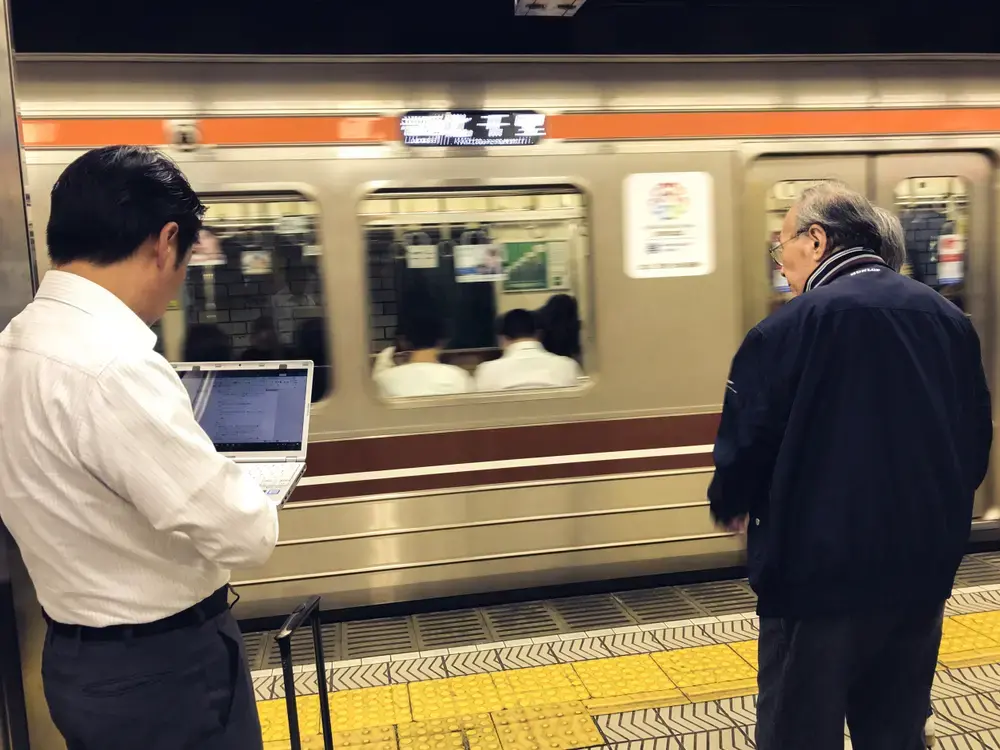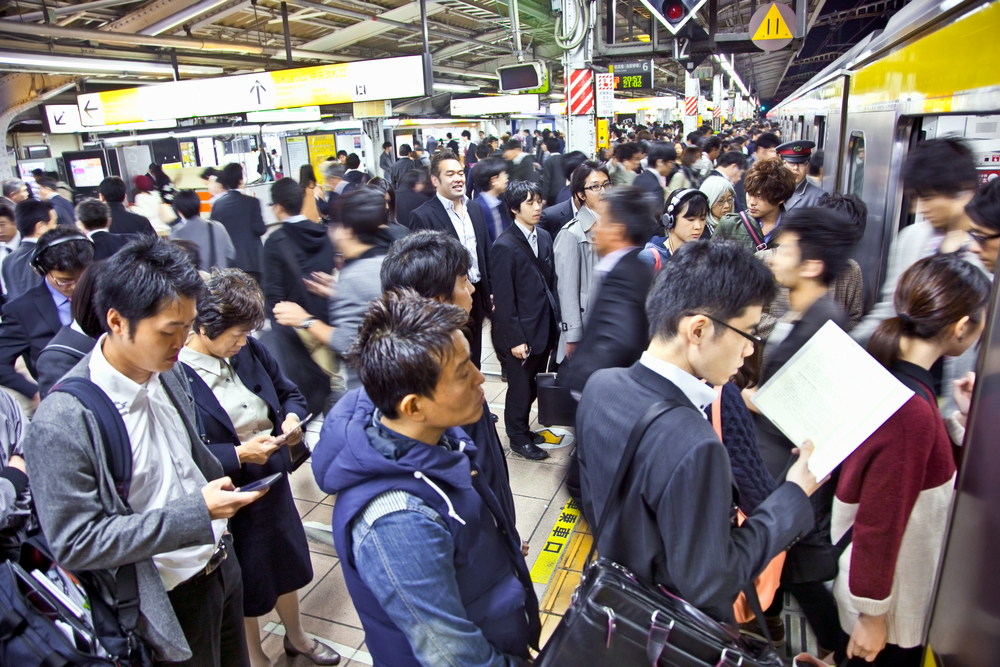
Warning: The following article discusses severe mental health issues and suicide. If you or anyone you know is experiencing suicidal thoughts, professional help is available. See resources below.
- Japanese Karoshi Prevention Hotline for Consultation: 03-3813-699
- the U.S. Suicide and Crisis Lifeline: 988 (SMS also available)
- Learn about suicide warning signs and suicidal thoughts: https://www.mayoclinic.org/diseases-conditions/suicide/symptoms-causes/syc-20378048
On December 25, 2015, 24-year-old Matsuri Takahashi died by suicide, jumping from her company dormitory. Takahashi was an employee of Japan’s largest advertising agency, Dentsu Inc., notorious for its rigorous working environment.
Prior to her death, Takahashi had posted several disturbing messages to her Twitter account, expressing her helplessness. “It’s 4 a.m. My body’s trembling. I’m going to die. I’m so tired” and “I’m physically and emotionally shattered” are just two of the numerous cries for help Takahashi posted to social media.
An investigation by Tokyo’s Labour Standard’s Bureau found that Takahashi consistently worked more than 100 hours of overtime in a single month, as instructed by her superiors. Takahashi’s story created nationwide outrage, leading to the approval of the 2018 Workstyle Reform Act, outlawing employees from working more than 45 hours of overtime in a single month.
Takahashi’s story is just one of Japan’s many cases of karoshi, a term translating to "death from overwork." Karoshi has plagued Japanese society for decades. Hiroshi Kawahito, a workplace accident lawyer, says he has worked on roughly 1,000 cases during a 45-year period and that the number of reported cases have stayed relatively consistent, despite the attempts of lawyers, lawmakers, and campaigners.
Some relatives of workers who have died by suicide have called for change. However, many of the reforms they pushed for have not been implemented. Additionally, there has not been a drop in the number of yearly overwork-related deaths, despite the addition of the 2018 Workstyle Reform Act. Hard deadlines and employee shortages exist in many different work areas.
When the first cases of karoshi were reported in the late 20th century, workers' causes of death mainly included heart attacks or strokes. However, in the early 21st century, Kawahito said, karoshi workers primarily died by suicide in incidents related to stress and workplace harassment.
Kawahito also mentioned a demographic shift in karoshi victims from the 20th to the 21st century. With Japan’s recent declining birth rate, more women are entering the workforce. In 2016, Kawahito told Reuters that "95 percent of his cases used to be middle-aged men in white-collar jobs, but now about 20 percent are women."
This demographic change is crucial because women and men are often treated quite differently in the Japanese work environment. Workplace sexual harassment cases, in which the victims are overwhelmingly female, can increase the likelihood of experiencing symptoms of anxiety, depression, and even suicide. So, with these 21st-century demographic changes in mind, what implementations are needed to properly deal with these cases?
Yusuke Kasagi, a workplace accident lawyer who has dealt with more than 150 cases, mentioned several fundamental issues with the Japanese workplace. First, he criticized labor unions, which he said had a passive relationship with company higher-ups. “In a way, Japan’s economy has developed because companies and unions avoided confrontation with each other,” Kasagi said.
Throughout his 10-year career as a lawyer, Kasagi has dealt with zero cases in which labor unions protested the unfair treatment of workers. According to Kasagi, the compliant nature of many Japanese labor unions is due to the social normality of extreme dedication to one’s job and a reluctance to issue complaints.
In addition, Kasagi insisted that proper management of employee work hours is crucial for preventing karoshi. In the Japanese workplace, it is common for employees to hide their true working hours either by the instruction of their employer or on their own accord. This means the established 45-hour monthly cap is likely being bypassed, especially in large corporations.
“Introducing AI or video cameras to help manage working hours would be important,” Kasagi said.
The final issue discussed by Kasagi was a general employee shortage due to Japan’s birthrate. This shortage has created more responsibilities and expectations for the average worker, which often leads to stress. Two clients represented by Kasagi provided more context for this issue.
The first client, who asked to have her name withheld to protect her privacy, was a mother who sought compensation for her construction worker son, who died by suicide in August 2021. Her son, who worked at the Shimizu Corporation, oversaw the framework for a rebar construction project. When the concrete pouring process was delayed due to issues with the rebar contractor, the mother said, her son quickly became overwhelmed.
Although the situation was out of his control, she said, her son felt personally responsible and took on significantly more overtime hours. He was responsible for several jobs, including on-site managing, meeting with clients and subcontractors, gathering construction work materials, and communicating with the Kajima Corporation, one of the largest construction companies in Japan.
The victim’s mother said major Japanese companies like the Shimizu Corporation enforce hard deadlines, which almost never change. "Japanese public work projects do not change the deadline even if the Olympics are held, and roads are closed," she said.
When a work environment is short-staffed, and deadlines are imminent, mental stress will almost certainly arise. The victim’s mother explained that reducing the number of tasks assigned to employees is also necessary despite the financial sacrifice. She stated that her son was so busy that he didn’t have any time for crucial self-care activities like mental health treatment.
"I wish he had something else to do outside of work, then things might have been different," she said.
The second client represented by Kasagi, whose name has also been withheld for privacy reasons, said she had a heavy workload at the Yokosuka base of the U.S. military in Japan that was responsible for fixing naval ships.
"In my particular case there are a certain number of people working and taking care of ships, and the number of ships increased, but the number of people remained the same.”
Alongside workplace lawyers like Kasagi and Kawahito, some relatives of victims, like Matsuri's mother, Yukimi Takahashi, are involved in campaigns dedicated to ending karoshi.
When asking Yukimi how her daughter described work at Dentsu, she explained that when Matsuri was working at the company, it had what was called the Ten Rules of Demon. “Out of one of the 10 rules, one goes if you get the job or any project, don’t let it go, even if you die.”
Additionally, Yukimi said, harassment at Dentsu was common, with a significant difference between seniors and juniors. “New workers have to obey what older workers say, if older workers are working until 4 in the morning, then the new employees should do that because everyone was working like that,” she said.
Yukimi said her daughter Matsuri was instructed by her supervisors to hide her working hours.
“When there was a department meeting, her boss said to report less overwork time. Don’t make it over 70 hours,” Yukimi said.
Since her daughter's death, Yukimi has told her story at high schools, symposiums, and colleges, and she joined the Ministry of Health, Labor, and Welfare Council for the Promotion of Measures to Prevent Death and Injury from Overwork.
“I’m always saying there is no work more important than your life,” Yukimi said. “Anyone can be in the same environment as Matsuri.”
Yukimi hopes to help end karoshi by informing youth of their ability to fight as a community and overpower what she calls “evil corporations.” She says it is ultimately the actions of these young workers that will determine the future of the Japanese workspace.











